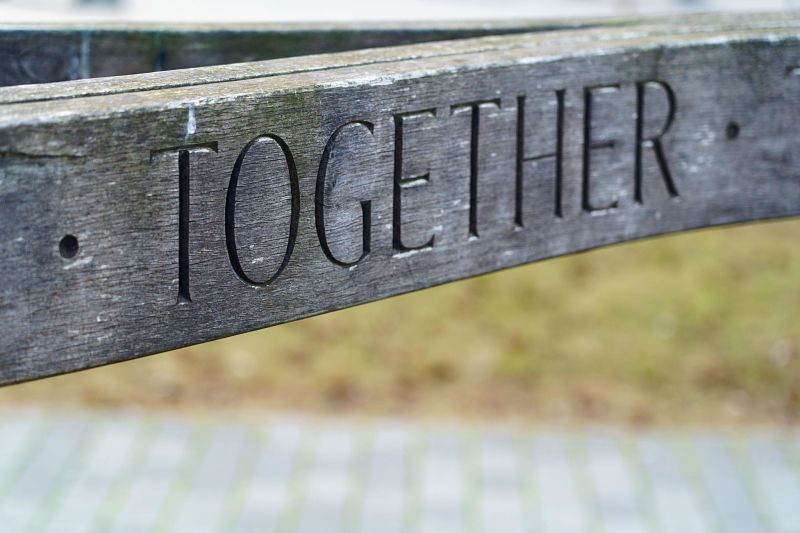Today we’re hosting a local summit for 100 professionals from Coventry and Warwickshire’s city and county councils, and NHS staff.
Time is critical. We need to have a big conversation about the challenges we face and Grapevine is stepping forward to start that conversation and lead it towards action.
What we know is that if we’re going to manage this pandemic as well as its social and economic fallout, then councils and the NHS need to carry on unlocking the power of communities.

We need to wedge the door open to new ways of working and being together before “business as usual” closes it again. Notice it, learn from it and apply it to all the challenges we are facing.
It took just 12 weeks of the first national lockdown to show us how the public sector could share leadership with communities. We worked on the problem before us. Leadership fell to those most able or willing to adopt it.
Now we’re in the midst of lockdown 2.0. We don’t know how many more there will be before the COVID-19 pandemic is over.

Today’s summit presents three big conversations:
- Stories of new and collaborative ways of working*.
- What does sharing leadership between public sector and communities involve?
- Our power to change. What power do we have to cement new ways of working during the pandemic? How will we use it?
There will be ways to actively get involved and commit to action. If you can’t be there today and want to contribute, get in touch at admin@grapevinecovandwarks.org.
Thank you to our contributors: Tony Clements (Strategic Director for Economy at Hammersmith and Fulham Council), David Robinson (leader of the Relationships Project) and Martin Reeves (Chief Executive of Coventry City Council).
Our other contributor is Fiona Langworthy, Associate Director of Business Development at SWFT Clinical Services Ltd. Her story kicks things off.
*Fiona’s story
When COVID-19 hit, patients with cancer and other conditions were not allowed to come to hospital. We had to find a way to deliver the prescriptions they needed to their door.
My own parents-in-law were shielding and worried, so it wasn’t hard for me to imagine how anxious a patient undergoing chemo treatment might feel about being forgotten.
We redeployed staff to help deliver drugs… but the work snowballed. We had to ask for help – and that’s where the blood bikers came in. They wanted to help, we needed the help and it was a solution just waiting to happen.
But we didn’t know the blood bikers. So we met up on Teams and built a relationship. Martin joined us from a campsite – it was in the background, so we chatted about it.
We got to know each other and developed a level of trust. Then we could move onto the business at hand. Open and frank discussions, no hidden agenda and everyone able to say what they were and weren’t comfortable with. The whole process was painless.
I dreaded involving Information Governance (IG) because we’d come so far. I needn’t have worried. Their lead said: “We need IG to not be the blocker. We need to make this work for you.” Quickly agreeing the right processes for getting consent, for example – it was like a breath of fresh air. We accepted there would be teething problems and said: “Let’s run with it!”
COVID gave us permission that isn’t normally there. I felt free of any worries of repercussions or criticism and I think IG felt it too.
George Eliot Hospital asked the bikers to step in when the Jaguar Land Rover helpers had to return to work. This would not have happened without our conversations, relationships and trust. We’re now exploring how to build on this.
We in the public sector believe it’s too hard to find solutions outside the organisation. Easier to approach a colleague down the corridor without any procurement or IG worries. We only look outside when we’re desperate.
But with the right relationships, the pandemic taught me it isn’t hard. It seems harder because of the barriers we put in the way… but it’s not. And the results are brilliant.
NHS funding is tighter than ever. If we don’t do something different we are going to be overwhelmed.
We need our voluntary and community sector colleagues. And that means we need to urgently figure out how to change ourselves.
